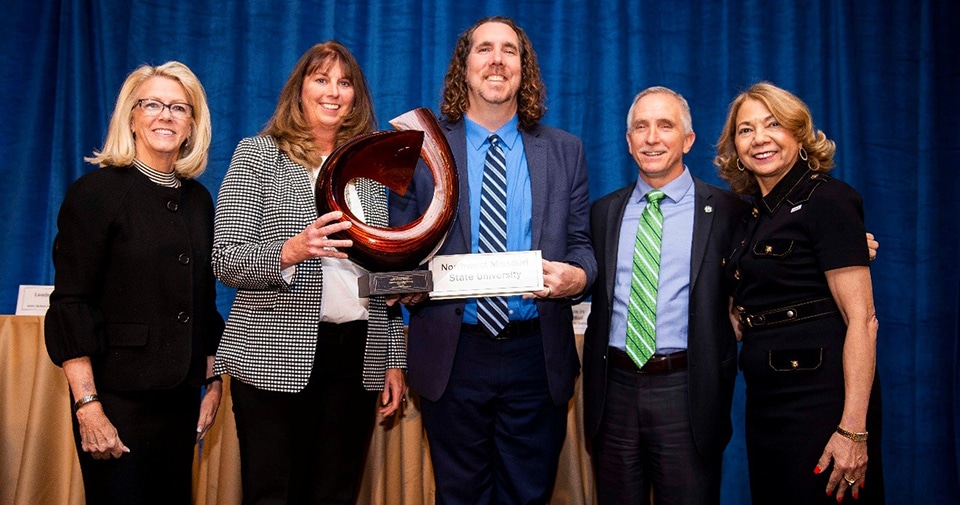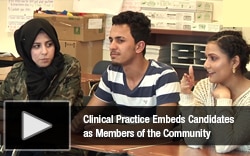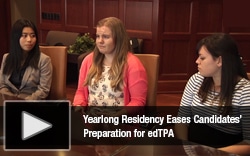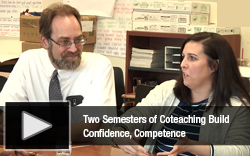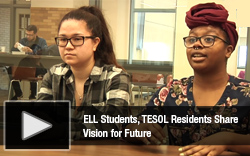11 Dec2018
By Katrina Norfleet
The University of Idaho (UI) has received a nearly $1 million grant from the U.S Department of Education to support the second cohort of its Indigenous Knowledge for Effective Education Program (IKEEP), which prepares and certifies culturally responsive Indigenous teachers to meet the unique needs of Native American students in K-12 schools. The first IKEEP cohort began in 2016 with nine students. The new grant will allow an additional eight scholars to begin training in the summer of 2019.
“I am so very pleased that the University of Idaho’s College of Education, Health & Human Sciences (CEHHS) is home to the IKEEP program,” said CEHHS Dean Ali Carr-Chellman. “This U.S. Department of Education grant will help some of our highest needs schools in the state of Idaho to have not only highly qualified teachers, but teachers with a clear sense of culturally responsive curricular approaches. I am deeply impressed by the dedication and perseverance of Drs. Vanessa Anthony-Stevens and Yolanda Bisbee in their pursuit of the IKEEP program for the betterment of all of Idaho.”
Anthony-Stevens and Bisbee, along with Christine Meyer and Joyce McFarland recently shared insights into the IKEEP model in the following Q&A:
04 Dec2018
By Jerrica Thurman
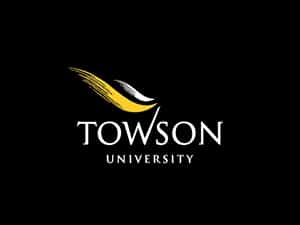
In Fall 2017, AACTE member institution Towson University’s College of Education launched a pilot program, SIMTeach@TU, to strengthen its clinical and practice-based curriculum through virtual simulation. The program features eight faculty who develop problem-based case scenarios for teacher candidates to experience real-world human interactions with avatars via the virtual reality technology called Mursion. The training simulations recreate the most demanding interpersonal challenges that teacher candidates may confront in the classroom with PK-12 students. It allows preservice teachers to practice and master the complex interpersonal skills necessary to be effective in difficult situations.
“We see simulation—or approximations of practice—work as part of the trajectory of getting our preservice teachers ready to work with real students in classrooms,” said Laila Richman, associate dean of the College of Education at Towson. “We think about this as the first phase of a university-based clinical curriculum that moves them towards being able to work with students.”
21 Nov2018
By Lynn M. Gangone and Renée A. Middleton
These letters to the editor, Don’t Blame Admissions Standards and Ed. Colleges Provide Value first appeared in Education Week on November 13, 2018. Reprinted with permission from the authors.
Don’t Blame Admissions Standards
To the Editor:
Marc Tucker has helped us better understand education systems around the world. Unfortunately, in his recent opinion blog post (“Teachers Colleges: The Weakest Link,” November 1, 2018), he demonstrates less understanding of America’s teacher-preparation programs than he has about programs abroad.
15 Nov2018
By Jerrica Thurman
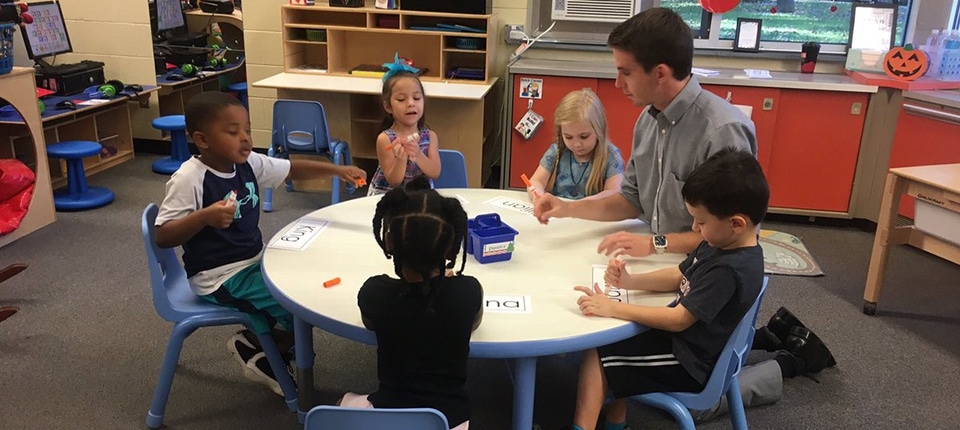
AACTE is a national partner for the University of Florida’s Collaboration for Effective Educator Development, Accountability, and Reform (CEEDAR) Center, which helps states and institutions of higher education to develop the ability of every teacher to prepare students with disabilities for college and careers. As a federally funded multi-million dollar project, CEEDAR works with AACTE and others to promote the preparation of all educators to have the mindset and skillset for effectively instructing students with disabilities along with all other students in the mainstream classroom.
“This initiative is about ensuring that all educators have the skills to work effectively with students with disabilities,” said AACTE Consultant Jane West, who leads the Association’s work with CEEDAR. “Special education has too often been considered a place and not a service. We are highlighting and promoting preparation for both general and special educators so they can provide effective instruction to students with disabilities in inclusive ways with an eye toward raising expectations and undermining the stigmatizing of students with disabilities.”
09 Nov2018
By Katrina Norfleet
Northwest Missouri State University was presented with the Christa McAuliffe Excellence in Teacher Education Award by the American Association of State Colleges and Universities (AASCU) at the opening session of its Annual Meeting last month in Washington, D.C. The award is named in honor of Christa McAuliffe, a teacher who was killed in the 1986 space shuttle Challenger disaster, and honors institutions for excellence and innovation.
Recipients of the award have shown evidence of top-level administrative support, alignment with its institutional mission and strategic agenda, contributions to significant institutional improvements or programming, research, and incorporated best practices.
06 Nov2018
By Katrina Norfleet

AACTE member H. Richard (Rich) Milner, IV, a leading scholar of urban education and teacher education, recently delivered the 15th Annual Brown Lecture in Education Research sponsored by the American Educational Research Association. The Annual Brown Lecture in Education Research is designed to feature the important role of research in advancing understanding of equality and equity in education. Each year, a distinguished scholar notable for producing significant research related to equality in education is invited to give a public lecture in Washington, D.C.
Milner is currently the Cornelius Vanderbilt Endowed Chair of Education and professor of education in the Department of Teaching and Learning at Vanderbilt University. His lecture, “Disrupting Punitive Practices and Policies: Rac(e)ing Back to Teaching, Teacher Preparation, and Brown,” focused on research on the practices and policies that implicitly or overtly punish rather than support the development of students of color.
15 Oct2018
By Jerrica Thurman
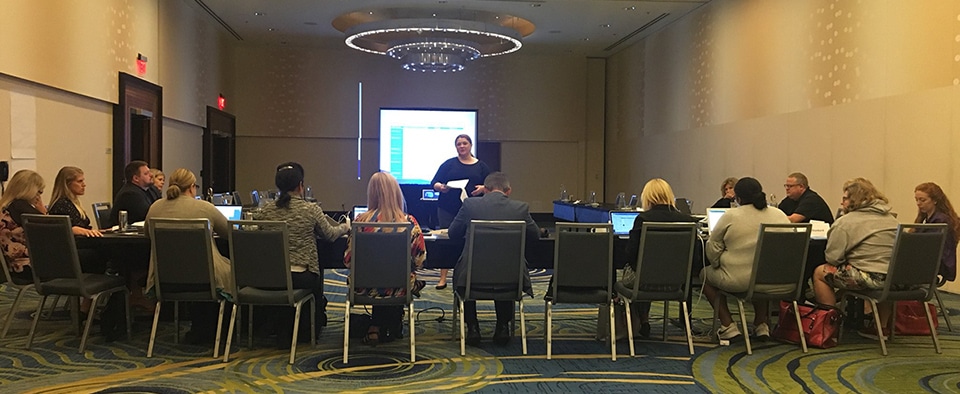
Nearly 40 members of the AACTE Clinical Practice Commission (CPC) and the Special Education Task Force met in Washington, DC on September 24-26 to discuss their separate and shared initiatives that serve as next steps for advancing the new CPC report. Released in January 2018, A Pivot Toward Clinical Practice, Its Lexicon, and the Renewal of Educator Preparation by the CPC offers a framework, guidance, and common lexicon to expand the operationalization of clinical educator preparation. Its 10 proclamations and tenets identify highly effective and evidence-based practices for embedding teacher preparation in the PK-12 environment.
During the planning session, the CPC developed a working plan to advance its emissary work and to create a site-based peer-coaching model. The Taskforce focused on finalizing a series of tenets that will be added to the existing CPC proclamations to provide more specific practice recommendations for special and inclusive educator preparation.
“The CPC met on the first day to discuss the next round of their work, which is to share findings of the report more broadly through focused emissary work and the development of peer coaching strategies,” said Amanda Lester, AACTE director of programs and professional learning. “This emissary work includes a defined plan that will help AACTE members learn more about how to implement the report’s research for developing or expanding their clinical practice model.”
09 Oct2018
By Deborah Koolbeck
The U.S. Department of Education (DOE) named the 2018 recipients of the Teacher Quality Partnership (TQP) grant program on Friday, September 28. In total, the DOE funded 17 grantees from the $43.1 million appropriated by the U.S. Congress in the Fiscal Year 2018 Labor, Health and Human Services, Education, and Related Agencies bill.
The TQP grant program is the only federal initiative dedicated to strengthening and transforming educator preparation at institutions of higher education (IHEs). To be an eligible grant recipient, the IHE must offer a baccalaureate or graduate program in education, and collaborate with PK-12 partners. Other requirements include the IHE’s educator preparation program and college of arts and sciences work in partnership with a high-need school or schools in a local, high-need district. This helps prepare teacher candidates to teach in high-need fields by providing practical experience in these schools during their training. The innovative partnerships between IHEs and PK-12 schools transform educator preparation programs as well as provide benefits to teachers in the classroom.
02 Oct2018
By Jerrica Thurman

Southern New Hampshire University (SNHU) in Manchester launched its new clinical master’s degree program during the 2018-19 academic year. The program offers dual certification in elementary and special education or early childhood and early childhood special education. It is designed to prepare teacher candidates for certification and to ensure that new educators have the required skills, competencies, knowledge, and dispositions specifically needed to support the development and learning of students in elementary grades (K-8) and general special education (K-12).
“It’s an accelerated 15-month clinical program that enables teacher candidates to work clinically with students during 11 of those months,” said Mary Ford, Interim Dean in the School of Education at SNHU. “They are [working] in supervised clinical experiences learning the craft and skill of teaching as well as monitoring the learning progress of their K-12 students.”
07 Sep2018
By Jerrica Thurman

Check out the September/October 2018 issue of the Journal of Teacher Education (JTE). It is now available online and hitting desks around the country. See what Volume 69 Number 4 has to offer!
14 Aug2018
By Thomas E. Hodges
CarolinaTIP Director Nicole Skeen, right, works with first-year teacher Karlee Baxter and students in Baxter’s classroom.
Teacher shortages are a critical concern across the United States, and the University of South Carolina is tackling the crisis head-on with an innovative response to teacher retention. While recruiting new teachers into the profession is vitally important, reducing the alarming rate at which novice teachers leave the profession must be a central focus in addressing the teacher shortage, as shared in a recent op-ed by University of South Carolina College of Education Dean Jon Pedersen.
“If you add the belief that teacher preparation and support should not end at graduation, a desire to gather data to inform programmatic improvement, and a teacher retention issue to new accreditation standards and a college leadership team determined to make a positive impact on the profession, beyond the walls of the university, you arrive at the impetus for the Carolina Teacher Induction Program (CarolinaTIP),” said Cindy Van Buren, assistant dean and one of the developers of the college’s induction program.
31 Jul2018
By Kristin McCabe
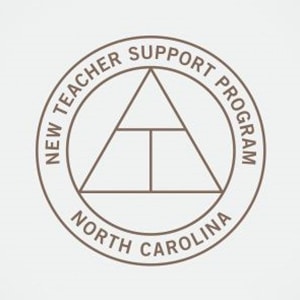
East Carolina University (ECU) has been named the new institutional home of the North Carolina New Teacher Support Program (NC NTSP), which provides university-based professional development and on-site instructional coaching for new teachers throughout the state.
The NC NTSP aims to boost the effectiveness and reduce attrition among early-career teachers in order to raise student achievement, especially in historically disadvantaged and underserved school districts.
Originally launched with federal Race to the Top grant funds in 2012, the program now operates with funding from the state legislature, which allows districts to enroll teachers in the program at a subsidized rate. Nine universities in the UNC System provide the instructional support in partnership with 53 school districts around the state.
24 Jul2018
By Deborah Koolbeck

As the focus of Congress turns toward accumulating “wins” for members to use to get re-elected, the appropriations process has taken an unexpected turn – work is getting done.
As I have shared with AACTE members in recent Federal Update webinars, Senator Richard Shelby (R-AL, chair of appropriations in the U.S. Senate) and Representative Rodney Frelinghuysen (R-NJ, chair of appropriations in the U.S. House of Representatives) committed to seeing the appropriations process return to “normal” this year–and that commitment is coming to fruition. By the end of June, the Senate had moved all 12 appropriations bills through subcommittee and full committee, and the House is on track to do so by the August recess.
28 Jun2018
By Deborah Koolbeck
On June 22, the U.S. House of Representatives Appropriations Subcommittee on Labor, Health and Human Services, Education, and Related Agencies (Labor-H) moved its Fiscal Year 2019 bill through markup. Despite the FY19 increase of $18 billion for nondefense discretionary funds from the deal made earlier this year, the House FY19 Labor-H bill received no additional funds (the Labor-H bill contains about 32% of the nondefense discretionary funds found across all federal agencies).
Given this challenge, it was a pleasant surprise to see that the programs that AACTE advocates for receive level funding or a small increase:
19 Jun2018
By Kristin McCabe
Four new videos are available this week in AACTE’s Research-to-Practice Spotlight Series highlighting the urban residencies of the State University of New York (SUNY) Oswego School of Education. In these final videos of the series, educators discuss the significance of getting to know students well and how the yearlong clinical experience helps TESOL candidates prepare for edTPA–and beyond.
Participants in the clinical partnerships of the SUNY Oswego School of Education say one of the significant benefits of a yearlong residency is that teachers get to know their students well and engage deeply in their community.









